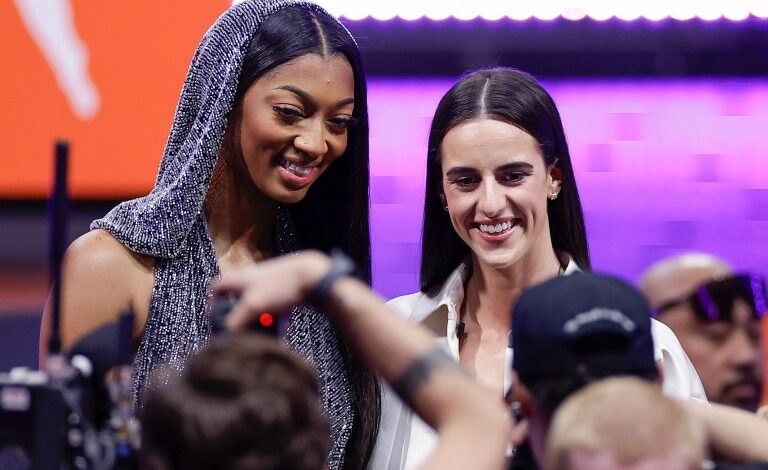
Unveiling a New Era: Caitlin Clark – The Modern Larry Bird in Race and Basketball
In the ever-evolving landscape of basketball, icons emerge not only for their skill on the court but also for the societal impact they embody. Enter Caitlin Clark, a rising star whose prowess on the hardwood is matched only by her progressive stance on race relations in sports. Drawing parallels to the legendary Larry Bird, Clark symbolizes a new era where talent transcends racial boundaries, and athletes become agents of change both on and off the court.
In the realm of basketball, Larry Bird remains an enduring figure, revered not only for his remarkable skills but also for his impact on race relations in the sport. As a white player in a predominantly black league during the 1980s, Bird faced scrutiny and skepticism. Yet, he silenced doubters with his exceptional talent, leading the Boston Celtics to multiple championships and earning three consecutive MVP awards. Beyond his achievements, Bird’s respect for his black counterparts and his advocacy for equality set a precedent for future generations.
Fast forward to the present day, and Caitlin Clark emerges as a beacon of hope in a sport still grappling with issues of race and representation. As a standout player for the Iowa Hawkeyes women’s basketball team, Clark has garnered attention not only for her remarkable scoring ability but also for her vocal support of racial justice initiatives. In interviews and social media posts, she advocates for equality and inclusion, using her platform to address systemic injustices both within and beyond the world of sports.
Clark’s playing style draws inevitable comparisons to Bird, with her sharpshooting prowess and court vision reminiscent of the Celtics legend. However, it’s her willingness to engage in conversations about race that truly sets her apart. In a sport where black athletes have historically been the standard-bearers for social change, Clark’s emergence as a white ally signals a shift towards collective responsibility in the fight for racial equality.
Like Bird before her, Clark faces challenges and skepticism as she navigates the intersection of race and sports. Critics may question her motives or dismiss her efforts, but much like her predecessor, she remains undeterred. Through her actions both on and off the court, Clark embodies the spirit of inclusivity and progress, challenging outdated notions of race and athleticism.
In the story of Caitlin Clark, we find echoes of the past and glimpses of the future. Just as Larry Bird paved the way for a more inclusive NBA, Clark’s journey promises to inspire a new generation of athletes to use their platform for positive change. In a world where sports serve as a microcosm of society, her example reminds us that true greatness lies not only in athletic achievement but also in the courage to stand up for what is right. As we embark on this new era of race and basketball, Caitlin Clark leads the way, proving that the court is not just a battleground for victory, but also a stage for social progress.



